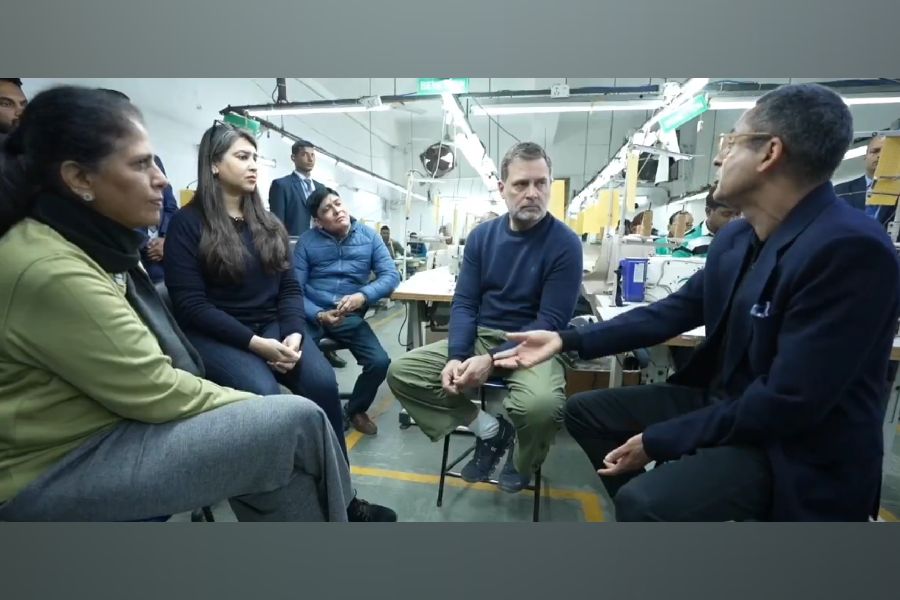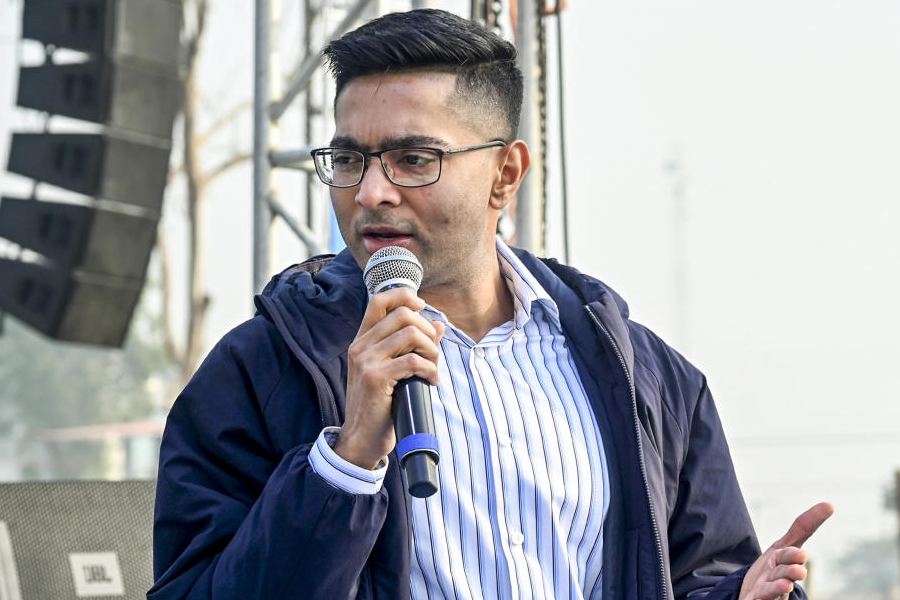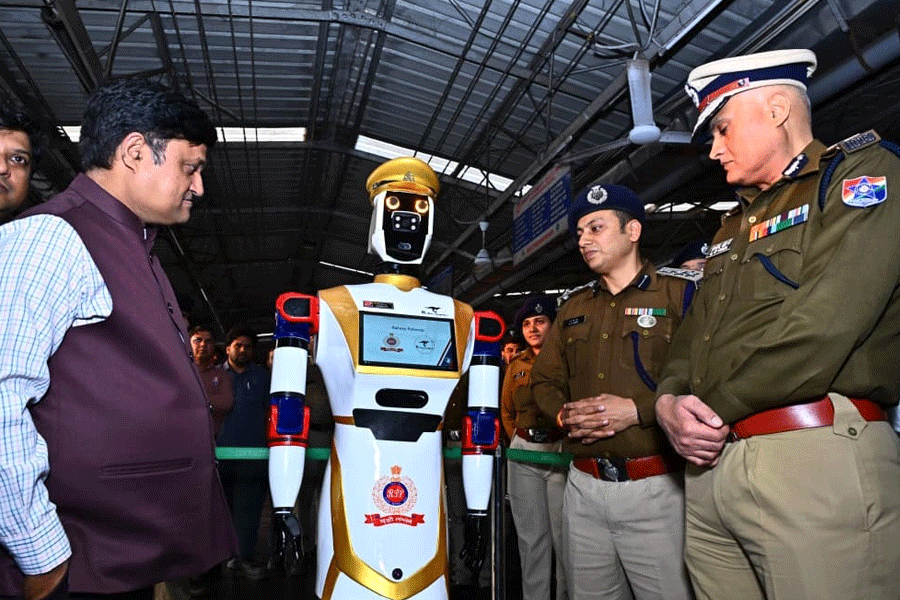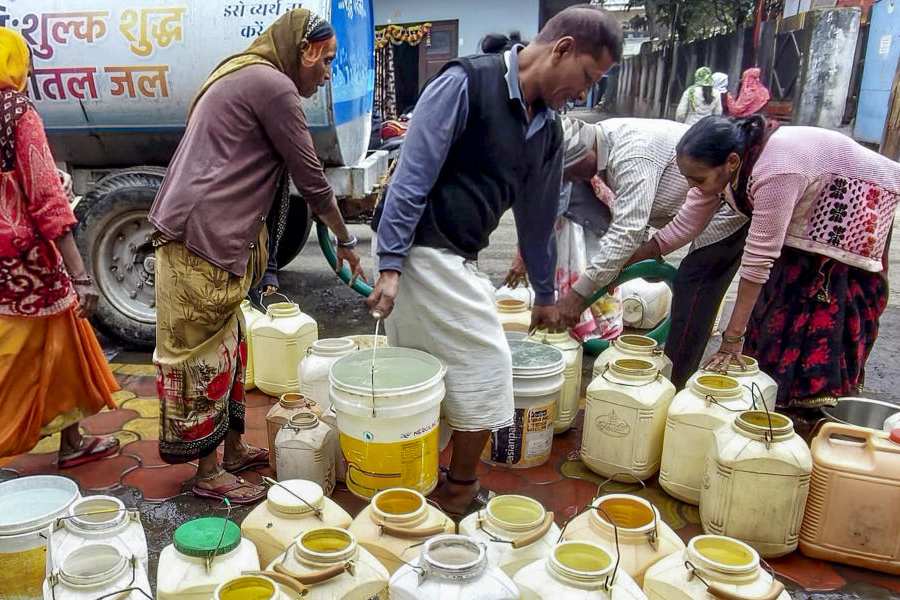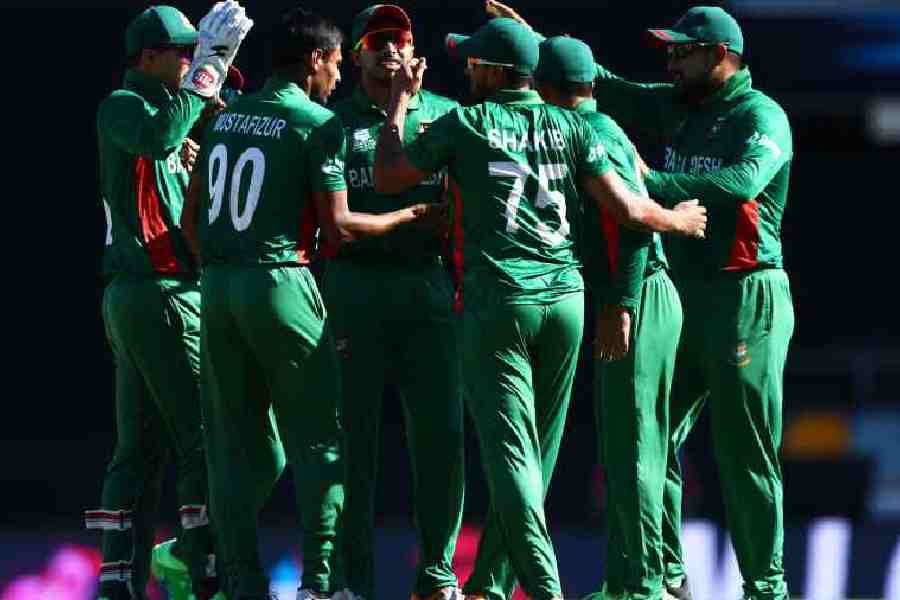CHEERLEADERS AT BIG W AND IPL

London, Aug. 16: Could Saina Nehwal have won the world badminton championship in Jakarta today against Carolina Marin of Spain if she had received just a little more support from Indian fans who seemed largely conspicuous by their absence?
Perhaps.
In the event, buoyed by a partisan crowd, Carolina won 21-16, 21-19.
"I saw some Spanish flags in the audience. When the crowd supports you, it just gives you more power." That was a comment Carolina made earlier this year but today, too, Spanish fans urged other supporters to join them in cheering Carolina.
Although there were some Indians in the crowd, the red and yellow hues of Spain appeared to dominate the Indian Tricolour.
On paper Saina, the world number 2, should really have won since she has beaten Carolina, the world number 1, on three of the four occasions they had previously met.

But going into the final, Carolina had one advantage. She had been voted the most popular foreign badminton player by Indonesian fans at the 2015 Badminton Fans Award presented by the Badminton Association of Indonesia. The voting period ran from July 9 to August 2.
A report stated that "her youth and her style of play have captivated badminton fans across Indonesia". Last year, at the age of 21, she beat the Olympic champion, Li Xuerui of China, to win the 2014 World Championships - which she successfully retained today despite injury niggles.
It has also been reported that the support of Indonesian fans "has given her great pleasure".
As for 25-year-old Saina, she has shown remarkable character to get into the final, the first Indian to do so. But perhaps she has been let down a little by her country and by Indian fans.
The support she has received - or perhaps, at times, not received - might go some way to explain why Indian sports persons so often fail to rise to the occasion.
Whether some nations have it in their DNA to be losers, while others are more inclined to be winners, is a subject that has long fascinated psychiatrists.
"Do Indians go down and watch athletics?" was a question posed today by the psychiatrist Dr Raj Persaud. "That may be an issue. You will always have people coming to cricket because that is such a national religion."
In marked contrast to the lack of support for Saina, Indian icons such as Sachin Tendulkar and Virat Kohli turned up at Wimbledon this year to watch the likes of Roger Federer. It may be that being seen to be part of an international elite has more appeal. Such tickets at Wimbledon are not easy to get.
"Sport is a very complicated business," Persaud pointed out. "There is a personality dimension and a cultural dimension."
He said: "In elite sport, there is a massive psychological dimension. Your average golf pro in the average golf club is probably is good enough technically to be on the PGA tour - it is the mental side that is the problem.
"There is a mental side to winning and losing. We also know that culture has a psychological impact - nations vary in certain attitudes. Key areas in which we know they vary are collectivism and individualism. Some societies are more collective, that is, individuals there see themselves as part of a bigger picture. The classic individualistic society is America. In a sense, elite athletes have to be very selfish. How individualistic is India as a society?"
Persaud continued: "The other thing is extroversion and introversion. Quite a lot of athletes are introverted. On the other hand, it does require a certain amount of extroversion in most athletes' careers to go out and get the right coach, to campaign for funding. You have to be surrounded by the right people or be an assertive person yourself. Indians are not the most assertive people on the planet - that's what makes them so charming. But assertiveness is an issue."
He emphasised: "Finally, there is an issue of national leadership - the best example is Nelson Mandela using rugby as a way of bringing South Africa together.
"I do think in Britain there is a sense in which public schools emphasise sport as part of a cultural ideal - you get the Prime Minister turning up for an event. When the Olympics came to Britain, the people at the top of sport in Britain and the government threw hundreds of millions at British athletics to try and 'buy' gold medals. Not in a nefarious way, but there was an understanding that if you threw money at the problem, it made things happen. I don't think India operates that way."
Persaud said: "Sport is part of national culture, national psyche. Indian leaders, burdened with a lot of problems, don't focus enough on this. There is a leadership element in placing sport more at the centre of the national agenda. It has benefits in terms of the psychology and the competitiveness which, I think, would be helpful."


